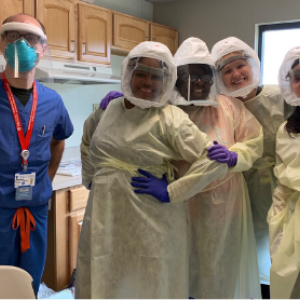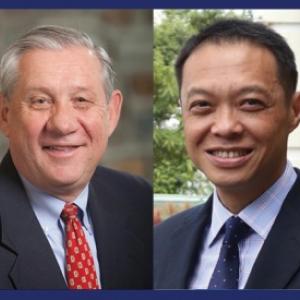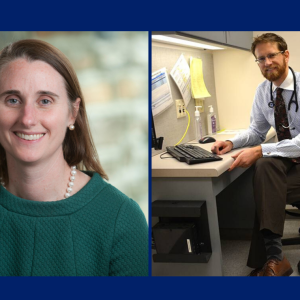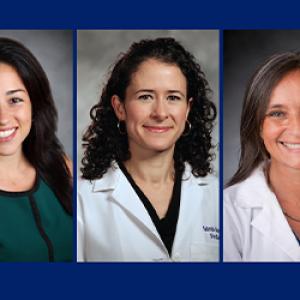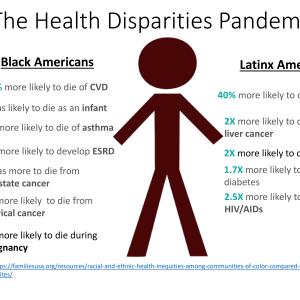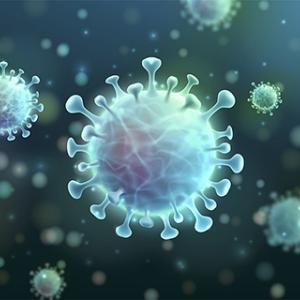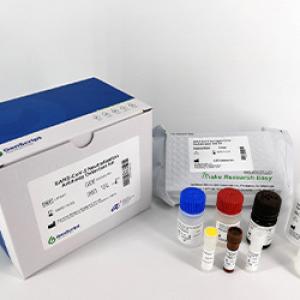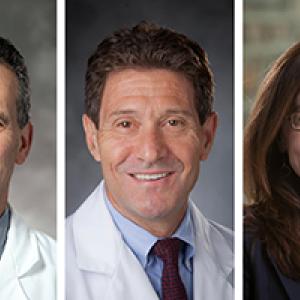Uncovering the Unknowns to COVID-19 Testing
This article was first published by the Duke Center for Applied Genomics and Precision Medicine
COVID-19 vaccine in 2020 highly unlikely, experts caution
Speculation that a vaccine for COVID-19 might be widely available by the end of this year is overly optimistic, three Duke experts said Wednesday.
While there may be substantial scientific progress by the end of 2020, there will still be significant manufacturing hurdles to clear before a vaccine is available to most people, the experts said during a briefing for media.
Below are excerpts from the briefing:
ON DR. ANTHONY FAUCI’S RECENT TESTIMONY ABOUT A VACCINE BY THE END OF 2020
David Ridley, health economist
Duke’s MURDOCK Study Launches COVID-19 Research in Cabarrus County
Want to avoid another shutdown? Wear a mask, experts advise
Duke doctors brief media on how best to move forward in the pandemic
If you’re in public and see someone wearing a mask, that person is doing it for your benefit.
So return the favor.
That was one of several themes to emerge Thursday from a media briefing featuring two Duke medical scholars with vast expertise in vaccines, immunology and the spread of infectious diseases like COVID-19.
Drs. Sallie Permar and Cameron Wolfe took questions for an hour on myriad issues. Here are excerpts:
In pandemic, experts offer ways to help vulnerable Hispanic communities
More resources and health protections are critical to protect Hispanic communities – many filled with essential workers – during the ongoing pandemic, three Duke health experts said Wednesday.
These resources range from simple public health education targeting their communities to paid sick leave, health insurance and the ability to distance while on the job, the health experts said during a question-and-answer panel with media.
Here are excerpts from the conversation:
‘A call to action’: Duke researchers, Durham community leaders confront COVID-19 health disparities in North Carolina
See all talks from Duke researchers and Durham community partners on the forum website.
In North Carolina, Hispanics and Blacks are contracting COVID-19 at disproportionate rates relative to their representation in the population, and Blacks are dying of COVID-19 at higher rates.
Evolution of pandemic coronavirus outlines path from animals to humans
The virus’s ability to change makes it likely that new human coronaviruses will arise
A team of scientists studying the origin of SARS-CoV-2, the virus that has caused the COVID-19 pandemic, found that it was especially well-suited to jump from animals to humans by shapeshifting as it gained the ability to infect human cells.
New SARS-CoV-2 Test From Singapore Can Detect Neutralizing Antibodies In An Hour
Test sees the antibodies that would grant immunity to COVID-19 – if it occurs
Researchers at the Duke-NUS Medical School in Singapore have announced a new blood test for neutralizing antibodies against SARS-CoV2, the virus that causes COVID-19, and have formed public and private partnerships to begin working toward making the tests clinically available.
Understanding COVID-19 Antibodies is Crucial to Vaccine Development
A trio of researchers at Duke University School of Medicine who have long collaborated to study how the immune system’s antibodies respond to HIV infection are now focusing on the new coronavirus.
COVID-19, the Latinx community, and mental health: An interview with Gabriela Nagy, PhD
Even before the COVID-19 epidemic Latinx immigrants were a vulnerable population. Now, they are among those hardest hit, with a greater likelihood to have jobs that are insecure or increase their likelihood of exposure, and reduced access to health care or accurate information about how to protect themselves.
